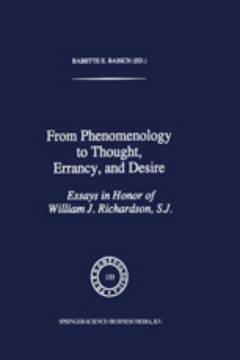Repository | Book | Chapter

(1995) From phenomenology to thought, errancy, and desire, Dordrecht, Springer.
In his Logic of Sense, Deleuze aims at displacing the opposition that defines the Platonic space, that of suprasensible Ideas and their sensible-material copies, into the opposition of substantial/opaque depth of the Body and the pure surface of the Sense-Event.1 This surface depends on the emergence of language: it is the non-substantial void that separates Things from Words. As such, it has two faces: one face is turned towards Things, i.e., it is the pure, non-substantial surface of Becoming, of Events heterogeneous with regard to substantial Things to which these Events happen; the other face is turned towards Language, i.e, it is the pure flux of Sense in contrast to representational Signification, to the referring of a sign to bodily objects. Deleuze, of course, remains a materialist: the surface of Sense is an effect of the interplay of bodily causes — it is, however, a heterogeneous effect, an effect of a radically different order than that of (corporeal) Being. We thus have, on the one hand, the generative bodily mixture of causes and effects and, on the other, the incorporeal surface of pure effects: events that are "sterile," "asexual," neither active nor passive.
Publication details
DOI: 10.1007/978-94-017-1624-6_30
Full citation:
Žižek, S. (1995)., Hegel, Lacan, Deleuze: three strange bedfellows, in B. Babich (ed.), From phenomenology to thought, errancy, and desire, Dordrecht, Springer, pp. 483-499.
This document is unfortunately not available for download at the moment.



